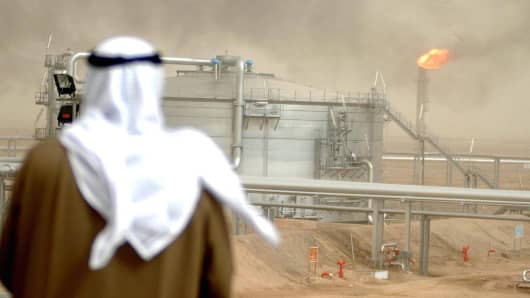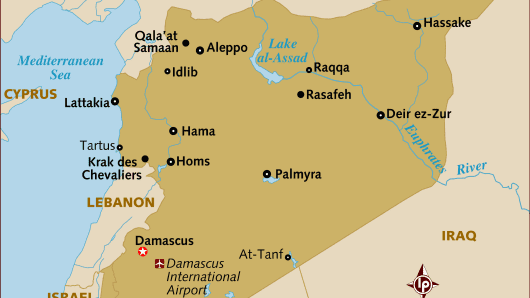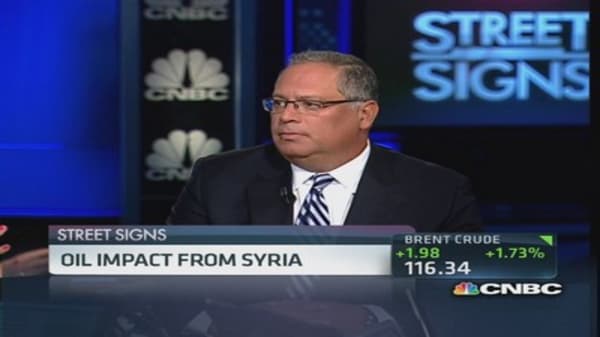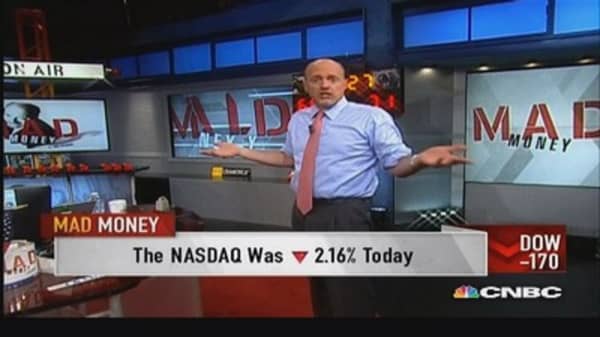While analysts point to the possibility of retaliation in the form of terror threats and Hezbollah attacks on Israel, it would be an attack on Saudi Arabia or Iraq that could have the biggest impact on oil prices.
"Our concern is that oil-directed attacks (in Iraq) move south and potentially disrupt the 2 Mb/d of Basrah grade exported through the Basrah port complex on the Persian Gulf. There are signs that the non-oil violence (bombings, etc) may be moving south, and oil-directed attacks may follow. Iran, who is Syria's only state ally in the region (Hezbollah and Russia are Syria's other allies), may choose to stir up such attacks, in order to hurt the economies of the Western countries by causing an oil price spike," Wittner notes.
He also said the price would probably not stay high for long since high prices weaken economies and cool demand. Saudi Arabia would also step up production, and other nations would release crude from their strategic petroleum reserves.
Any price escalation has also been mitigated by the fact that the U.S. has increased oil production, reducing its reliance on imported crude from Africa and the Middle East and allowing that supply to reach other markets in Asia and Europe.
U.S. oil production is at a 20-year high, totaling 7.5 million barrels a day last week, while the U.S. was importing 8.4 million barrels a day, according to fresh Energy Information Administration data Wednesday. The U.S. inventories were higher than expected, with commercial crude oil inventories (excluding the Strategic Petroleum Reserve) increasing by 3 million barrels from the previous week to 362 million barrels, near the upper limit of the average range for this time of year.
Analysts say if there is not a disruptive reaction to a U.S.- led strike, Brent should not go much above $120 and WTI should stay below that level. "It should be episodic. This would have to turn into a region-wide conflagration in order for prices to stay there," said Kilduff. "If rockets start flying into Gaza and into Israel and other things happen, such as an attack on Saudi Arabia, all bets are off. A big worry is that there's an attack on Israel that draws us in further."
Experts say ending President Bashar Assad's regime is not the objective of the U.S. and its allies, as that would leave the country and its weapons in the hands of a loosely knit group of rebels that include al-Qaeda.
"When you look at what the (Obama) administration is looking to do, it's a very limited attack. It's not going to change the situation in the region right now. The really big issues there are Iraq and Libya where you have actual disruptive events going on. Libya is going to see continued instability," said Greg Priddy, director of global oil at Eurasia Group.
Priddy said the loss of oil from Libya and Iraq are significant but not enough to offset the trend of ample global supplies. Iran's exports have also been severely cut due to sanctions against it for its nuclear program. Workers striking Libyan oil facilities are responsible for the continuing lost volume of about 250,000 barrels per day, and Iraqi exports are down due to the pipeline attacks. Priddy notes that Saudi Arabia boosted production to 9.8 million barrels per day in July and August.
(Read more: Allies draft plans for strikes against Syria)
He expects any strike on Syria to be narrow enough to avoid major disruptions in the oil market and not to cause a sustained breakout in prices.
Seasonal demand from refineries is dropping off, and at the same time non-OPEC production in increasing, particularly from North America. Priddy noted that non-OPEC production in July rose 570,000 barrels per day from June's level, with North America making up 280,000 barrels per day of that increase.
(Read more: Investors: Be cautious as Syria looms)
Syria is not a major oil producer, and it is not on a major oil route. Societe Generale says Syrian output in the two years since the Arab Spring and the Syrian unrest began, its output has fallen to 50,000 barrels per day from 350,000.







